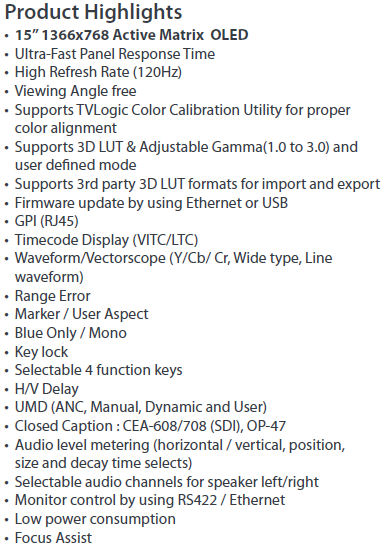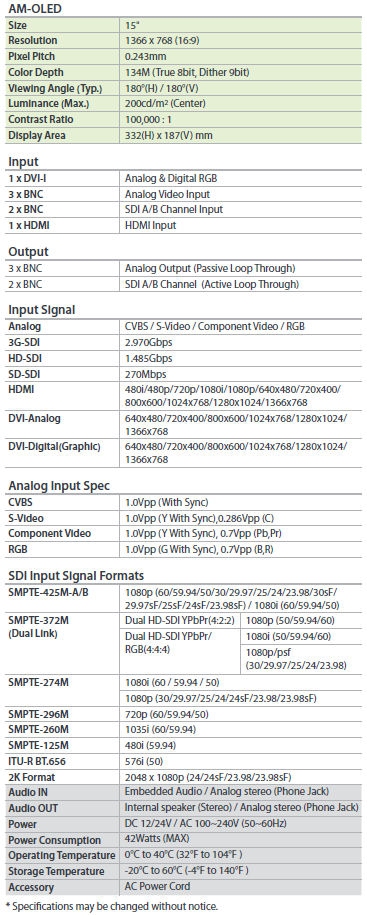LEM-150 : The world’s First Professional OLED Monitor
The LEM-150 is the first broadcast monitor to utilize an Organic Light Emitting Diode(OLED) display. OLED offers many advantages over conventional flat panel technologies including highest possible contrast ratio and ultra-wide viewing angle(180°). In addition, due to extremely fast pixel response time, LEM-150 offers clean and smooth motion..png)







